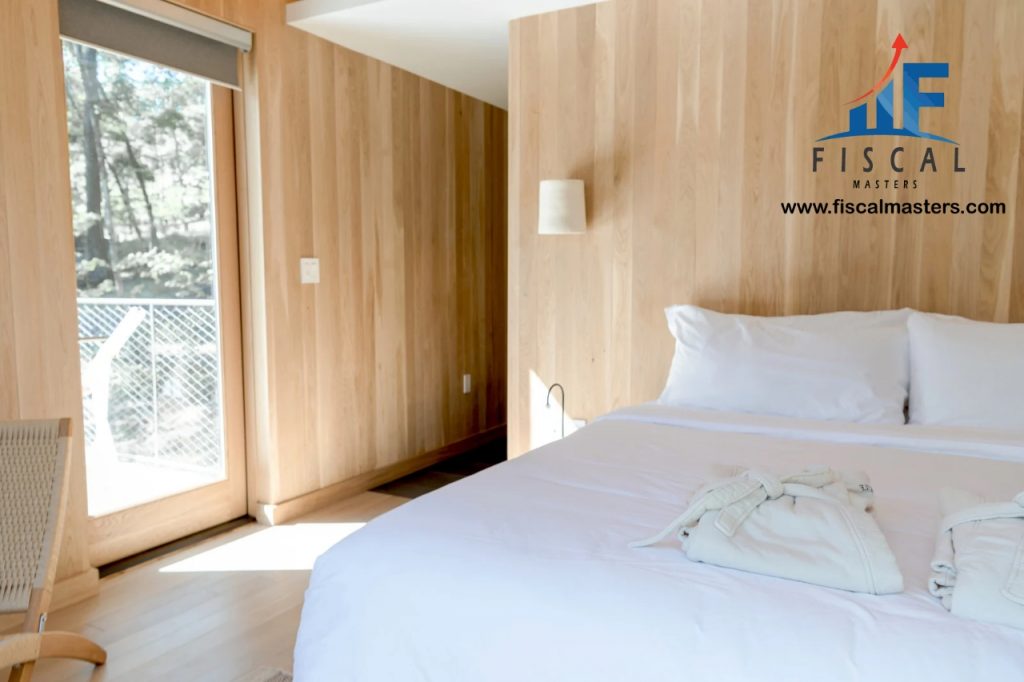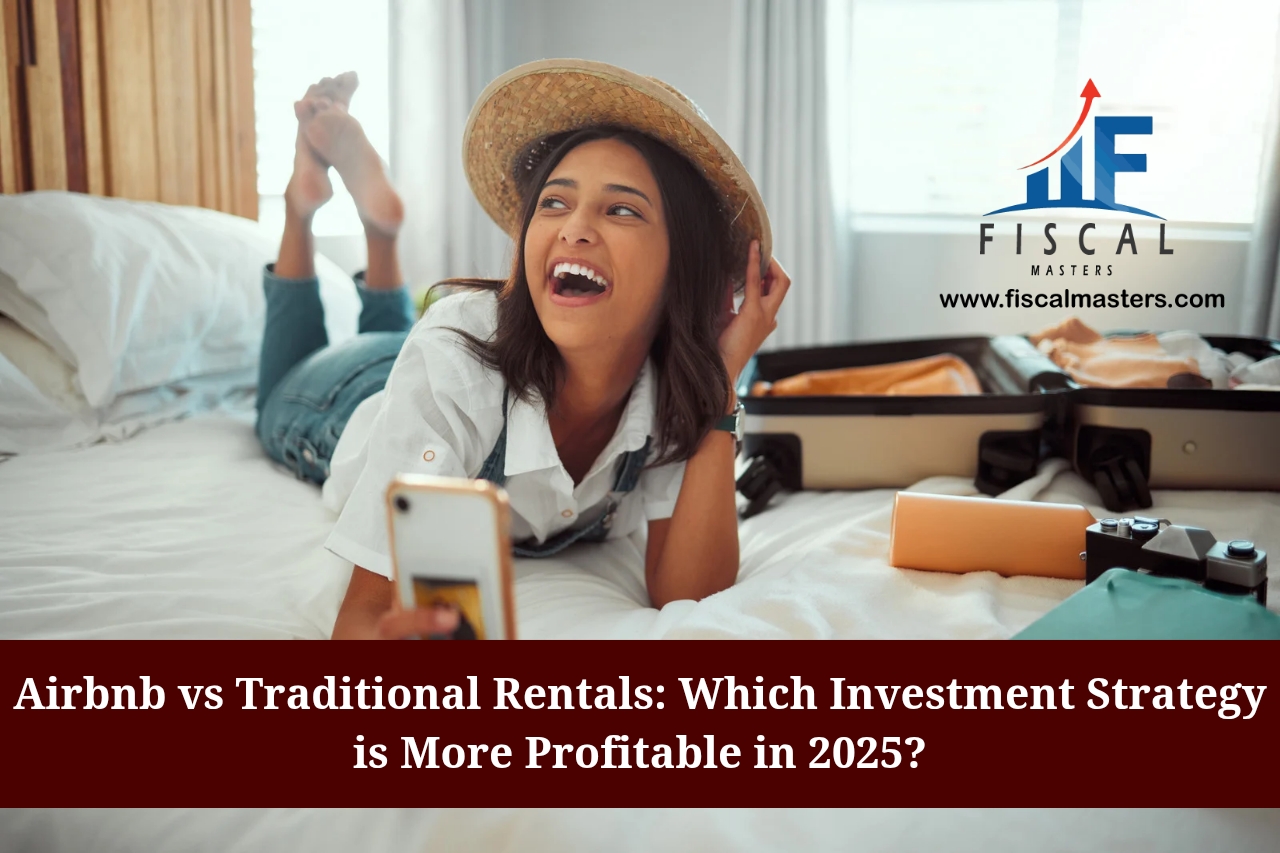When Mark and Marshall bought their first rental property back in 2020, they thought they’d cracked the code to easy wealth. What was their plan? Find reliable tenants, collect monthly rent, and relax while their property is appreciated. But, life had a few plot twists.
Within a year, their friend Sonia started casually mentioning how her Airbnb side hustle was pulling in triple what they were earning. They laughed it off until she showed them the numbers.
Read more on: The Importance of Automated Savings – March 2025
By the next summer, Mark and Marshall decided to give Airbnb a shot. Fast forward three months, and they’d earned more than an entire year’s worth of traditional rent.
But between the constant guest messages, cleaning turnovers, and unexpected repair bills.
If you’re in this boat, or considering taking the plunge. Don’t panic, we’re not alone.
The Airbnb vs. traditional rentals for a normal rental is picking up in 2025, and it’s worth knowing which method really takes it in without burning you out.

Airbnb vs. Traditional Rentals: Which Investment Strategy is More Profitable in 2025?
This isn’t an apples-to-apples comparison. It’s an apple vs.fruit salad. The debate around Airbnb vs traditional rentals is heating up in 2025, and for good reason, both types of rental have their pros and cons.
Learn more about: Crafting Your Retirement Savings Strategy: A Comprehensive Guide
Airbnb offers quick and flexible income. You can adjust prices around local events, holidays, or even weather. If you’ve got a property near a beach or tourist spot, short-term guests can bring in cash fast. In 2025, with international tourism booming again post-pandemic, Airbnb hosts in hotspots are thriving. But traditional rentals are the old faithful.
Lease it out for a year, get steady checks, and enjoy a bit more peace of mind. You won’t make as much during busy seasons but you also won’t be scrubbing toilets every weekend or worrying about guest complaints at 1 a.m. Which one do you think truly makes more sense this year? Let’s dive into the article and break down the numbers, time commitments, and lifestyle impact to help you decide what’s right for you.
Read more: 7 Best Investment Opportunities for 2025: Where to Grow Your Wealth This Year
Short-Term Rentals and Long-Term Rentals
The main difference between short-term rentals vs long-term rentals boils down to how much control you want and how much chaos you can tolerate. With Airbnb, you’re the captain of pricing. That two-bedroom cabin? It might go for $600 a night in the fall when the leaves turn, and then drop to $150 in January.
You set the rules. You should keep in mind that you will also deal with more turnover, cleaning, and guest issues. Traditional rentals are somehow predictable. You agree on a rent amount, sign a lease, and (ideally) collect monthly without too many hiccups. But you don’t get to adjust rates mid-lease, even if the market shifts. And here’s something few investors talk about: Guest Behavior.
Airbnb guests might party, leave the place a mess, or treat your home like a weekend escape rather than someone’s actual house. For long-term tenants, they’ve got a stake in the place and usually treat it with more care.
If you’re choosing between Airbnb vs traditional rentals, think about how involved you want to be and how much unpredictability you’re willing to manage.
Read more: 10 Tips to Choose the Right Type of Investment Vehicle to Maximize Returns – January 2024
Best Rental Investment Strategies in 2025
Now, here’s where things get interesting. In 2025, savvy investors aren’t just picking sides, they’re blending strategies. Medium-term rentals are making waves. These are 30–90 day stays aimed at digital nomads, travel nurses, or families between homes. It’s a sweet spot. Less turnover than Airbnb, but more cash than traditional leases.
Picking markets with strong tourism and landlord-friendly regulations is a winning move. The best Airbnb vs traditional rentals strategies today include scouting cities where short-term rental laws are flexible and property values are still climbing. Don’t forget to run the numbers.
Gross income sounds good, but it’s your net that matters. Once you factor in taxes, maintenance, supplies, and platforms’ fees, the picture changes fast.
Read more: Tax-Saving Strategies- How To Maximize Savings For Mid-Level Enterprises- March 2024
How Profitable is Airbnb Hosting?
So, how profitable is Airbnb hosting really?
If you’re in a hot location and run your listing like a business, Airbnb can absolutely outpace long-term renting. Some hosts make their full-time salary in a few peak months. But behind every Instagram-worthy success story is a mountain of work. You’ll need professional photos, glowing reviews, and automation tools just to stay competitive.
Many hosts in 2025 are using dynamic pricing software, automated messaging systems, and self-check-in locks just to stay afloat. Still, even with all the tech in the world, it’s not always passive. That high Airbnb income comes with hustle.
Read more: Ethical Investing Explained: How to Align Your Investment Portfolio with Your Values
Traditional Rental Income vs Airbnb Earnings
Let’s take an example of Sarah. She owned a cozy one-bedroom apartment in California, renting long term. She pulled in $2,300 a month about $27,600 annually. In early 2025, she switched to Airbnb. At $190 a night and an average of 70% occupancy, she grossed roughly $48,000.
Sounds like a win until you subtract $6,000 in cleanings, $1,800 in supplies, $2,400 in repairs, and around $7,200 in platform fees and taxes. Her net profit came out around $30,600. So yes, Airbnb beat her old lease but it also doubled her workload.
According to a recent study, operating costs for short-term rentals can eat up to 50% of your gross revenue once you factor in all the cleaning, restocking, utilities, and platform fees. When comparing Airbnb vs traditional rentals, ask yourself what price you’re putting on your own time.

Best Cities for Airbnb Investments in 2025
Location is everything in real estate, and 2025 is proving that all over again. The best cities for Airbnb investments in 2025 include:
Paris, France
Timeless charm, year-round tourism, and global appeal make it a hot Airbnb destination in 2025.
California, USA
From coastal cities to wine country and national parks, it draws millions of visitors all year long.
Read more: Securing Your Future: A Guide to Retirement Savings
Tulum, Mexico
Sun-seekers and remote workers keep demand strong year-round.
Tokyo, Japan
Tourism is booming again after years of restrictions.
Orlando, Florida
Theme parks are back, and Airbnbs near Disney are getting booked months out.
Before you dive in, though, double-check local laws. Some cities are cracking down on short-term rentals, and you don’t want to buy a property only to find out it can’t be legally listed on Airbnb.
Read more: Exploring the Rise of Buy Now, Pay Later Services: Convenience or Debt Trap?
Passive Income from Rental Properties
Let’s talk about the dream. passive income from rental properties.
With a long-term tenant and a property manager, traditional rentals really can be low-maintenance. You collect rent, handle occasional repairs, and otherwise, it’s pretty hands-off. Airbnb can be passive too but it takes setup. Think automated pricing tools like Wheelhouse, co-hosts who manage guest communication, and hired cleaners on speed dial.
Once the system is in place, you can step back. Getting there is where the work happens. The key is figuring out how passive you want your income to be. If you like being involved and treating your rentals like a business, Airbnb might suit you better. If not, a stable lease might be the way to go.
Tax Implications for Airbnb Hosts in 2025
Taxes are the part nobody loves talking about but everyone needs to know.
In 2025, the tax implications for Airbnb hosts are more complex than ever. If you rent for more than 14 days a year, that income is taxable. And depending on how hands-on you are, the IRS may view it as self-employment income.
Check out: Understanding the Ripple effect: How Interest Rates Impact Your Finances- January 2024
Hello, extra taxes! Traditional rental income is generally seen as passive income, which often has simpler tax treatment. But Airbnb? You need to track every little thing, linens, toilet paper, restocking supplies, cleaning fees.
Hire a tax professional who understands Airbnb vs traditional rentals and the legal loopholes that come with both. It’ll save your money and prevent you from major headaches.
Read more: Airbnb vs Renting: Choosing the Best Investment Strategy
Airbnb vs Traditional Rentals: Time vs Money
Money is great but your time is priceless.
Airbnb requires more attention. Guests ask questions, leave reviews, and expect near-instant responses. Managing bookings, keeping calendars updated, and handling emergencies? It adds up. Traditional leases are a “set it and forget it” type of deal.
Once you’ve signed the lease, you’re off and running at least for most of it. More investors are turning hybrid in 2025. Airbnb when it’s high season, then switch to medium or long-term the rest of the year. Flexibility is the game.

Conclusion
So, Airbnb vs traditional rentals. Which one actually makes you more money in 2025? Here’s the honest answer: it depends. If you’re in a high-traffic tourist area, enjoy hospitality, and don’t mind the occasional 2 a.m, plumbing problem, Airbnb could be your gold mine.
But if you want consistency, despise surprises, and desire genuine passive income, traditional rentals are still an ironclad option. The best news? You don’t need to choose between one. With a little imagination, you can discover a model that strikes the balance between earnings and liberty without losing sanity.
If you want instant profits or slow and steady wealth, the secret is to select a means that is conducive to your way of life. Because the best money-making investment strategy for 2025 isn’t all about the cash. It’s about creating a system that serves you.

